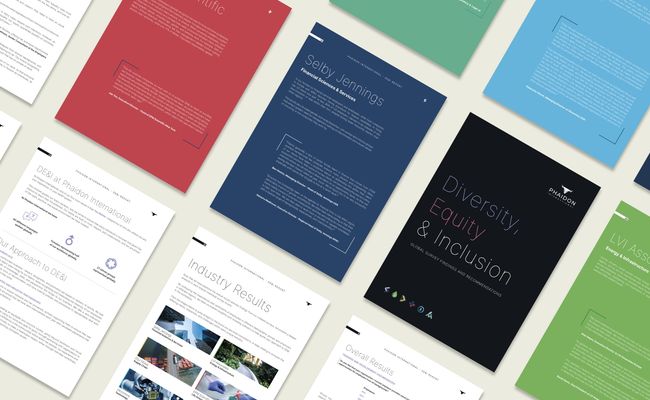Even before the global health crisis, many organizations established virtual recruitment strategies and were transitioning towards a remote working paradigm – albeit at a blistering pace. However, post-pandemic, the corporate experience for both employee and employers has dramatically altered. The demand for flexible ecosystems and fast-developing digital platforms needed to be met by firms, but amongst other factors, the entire recruitment process also required a strategic re-evaluation.
This blog unearths some of the digital-fast approaches that your company needs to know about.
Virtual hiring is here to stay
We engaged with our global talent network to ask if they would like to continue virtual interviewing in the future. The response cultivated some interesting insights, notably in the predominant shift of employee and candidate motivations, with a little over half (52%) of respondents expressing a willingness to pursue digital hiring. As virtual ways of working carve out a path forward, it is therefore vital for recruiters and hiring managers to maximize new assessment and custom-built digital tools to facilitate a more personalized service.
Online hiring relies on transformative technology and the right mechanisms to increase collaboration. The digitally nimble recruitment infrastructure can cover most miscellaneous tasks, such as virtual paperwork or online job boards, but is there any innovative processes that are currently being leveraged by businesses?
Artificial intelligence
From chatbots, machine learning, to automation, many firms are deploying new digital tools as a means of acting faster and ultimately snatching up top talent ahead of competitors. Artificial intelligence (AI), a field of study that works to engineer computers to a human capacity, is often deemed the technology of the ‘future’. After all, this is an industry that has evolved at an average of 20% per year for the past five years.
Implemented by major players in the recruitment space, such as HireVue, Mya Systems, or Wade & Wendy, AI-powered firms can save annual costs, benefit from a reduced hiring time, and integrate solutions with clients, HR systems, or the compliance field. Rolling out artificial intelligence as part of the recruitment process may help with mundane tasks, like scheduling interviews and CV parsing, which can happen at scale. In this sense, the insertion of AI in the recruitment and selection practice also moves the dial on diversity – by neutralizing CV submissions and undercutting unconscious biases.
Today, AI-driven tactics create a more seamless recruiting model, allowing the function to play a strategic and less operational role. Over the previous few years, advances in AI have not only helped companies get ahead of the curve, but the software streamlines the process and subdivides pools of applicants. From acknowledging patterns in behavior, testing competency skills in real situations, to generally refining the recruitment database, AI applications can enrich candidate insights – allowing employers to make smarter hiring decisions. Virtual recruiters and business leaders have the choice to make great strides by embracing artificial intelligence; one that breaks ties with inconsistent systems to yield a more transparent and effective talent acquisition process.
Virtual reality
Virtual reality (VR), designed to fully immerse an individual into a stimulated reality through glasses or a headset, is an exciting prospect for remote recruitment. Often interactive, VR is making waves; opening up a new toolkit that shapes engagement and optimizes traditional methods of hiring. According to PwC’s Future of Recruiting Survey, 65% of candidates reported that they would be more likely to take a role if first experienced through technology.
Across the globe, many brands with the likes of Jaguar or Deutsche Bahn, are exploring new ways to utilize this cutting-edge technology in their day-to-day operations. Virtual reality goes further and beyond the limitations of one-way interviews, empowering recruiters to set up virtual tours, pre-defined activities, or gamified tasks to meet prospective candidates ‘in-person’. Not only does VR-driven initiatives cater to the specific needs of employers, but virtual reality can give candidates more depth into the role, by showcasing the workplace environment and corporate culture. VR in recruitment also provides a fully interactive and hyper-personalized experience, whereby candidates have control over their own virtual recruiting journey through self-scheduling tools.
Whether you immerse candidates in a full digital sphere or not, the fact remains that to attract business-critical talent, firms need to harness an agile recruiting process that moves away from outdated concepts. Looking ahead, mixing virtual experiences with, where appropriate, in-person touch points may be a positive extension to the future of hybrid work. The integration of VR-based practices might strengthen an organization’s digital game – a competitive tool that could certainly differentiate who survives and thrives in the current labor market.
Mobile recruiting
Many recruitment specialists have long sought to incorporate mobile hiring into processes, not only to enhance the candidate experience, but to stand aside from the crowds. The use of mobile tech to saturate through job boards is likely to continue long-after the pandemic, especially since applications submitted via mobile device exceeded those submitted via desktop, which decreased by 6.7% last year.
The statistics are in line with the general meteoric rise of mobile consumption into the mainstream. The smartphone interface is certainly the most- used digital platform to date, but is the future of recruiting mobile? Despite device-friendly methods disrupting the sphere of recruitment, with job searching at your fingertips and around the clock accessibility, mobile hiring may undoubtedly improve talent acquisition and fuel business growth.
Traditional hiring platforms such as Monster, Indeed, and LinkedIn are among many major brands that have a fully functional mobile application offering. By creating a synergy between smartphone apps, social media outreach, and online web-based activity, companies can benefit from new streams of online engagement and a plethora of recruitment possibilities. The mobile-optimized job experience is a specialized recruitment weapon. Firms can directly insert themselves into a mobile screen – nurturing prospective candidates through smart notifications, automated text questions, and schedule interviews at the speed and tenacity of a text.
Even screening processes have altered with the tide. Alongside gamified and video-based assessments which are conducted on smartphones, pymetric assessments may be set to replace physical interviews in the future. The pymertic mobile interface, turbocharged by behavioral science and artificial intelligence, tests the competencies and problem-solving skills of candidates. Along with measuring a job seeker’s true potential, the mobile recruiting software also has the benefit of screening the entire hiring cycle with precision and agility; providing recruiters with a treasure trove of valuable data to utilize when prospecting candidates. Even if you are hesitant to jump on the ever-evolving trend, businesses should observe from the side-lines or partner with a talent specialist, as mobile recruiting could be your edge to attract, retain, and secure talent in a steep global hiring landscape.
Head over to our virtual recruitment landscape: reset and reboot insight into remote recruiting.
As a global talent partner, we leverage digitally driven tools and tactics to ensure that the recruitment process is in expert hands. If you’re an employer looking to make a business-critical hire, contact us today.








